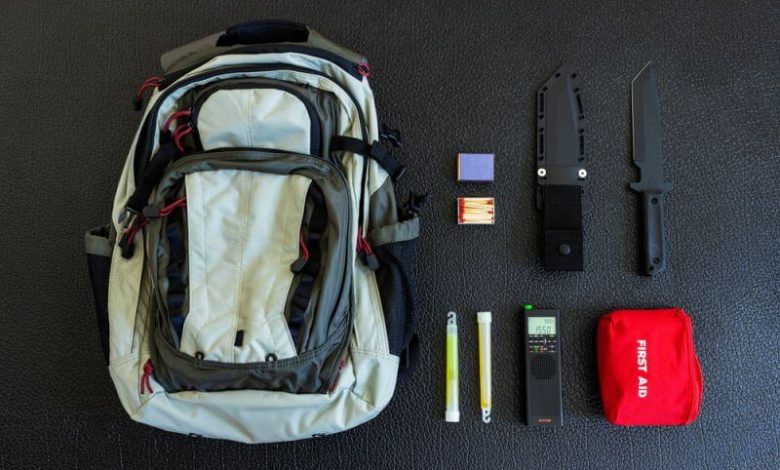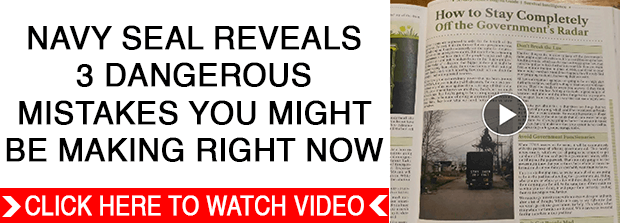How to manage your resources when bugging in – Survivopedia

Like me and other folks out there, you’ve probably got your supplies and you’re ready to lock the door when the brown stuff hits the fan. Perhaps, the world outside is either falling apart or just taking a very bad nap—either way, you’re not leaving. Bugging in isn’t about waiting it out; it’s about stretching every calorie, watt, and drop of water until normalcy (whatever that is) returns.
And here’s the hard truth: Most preppers screw this up. They stockpile like they’re prepping for a weekend camping trip, not a month-long siege in a studio apartment. They forget that survival isn’t just about having resources—it’s about managing them so they don’t run out when you need them most.
The First 72 Hours: When Panic Eats Your Supplies Alive
The moment the world outside starts crumbling, something strange happens to even the most disciplined prepper—the brain short-circuits into survival mode, and suddenly, all those carefully calculated stockpiles start vanishing at an alarming rate. It’s not looters or some outside force draining your resources. It’s you.

Panic has a way of rewriting logic, convincing you that eating an entire jar of peanut butter at 3 AM is somehow a good idea, or that you absolutely need to flush the toilet one last time even though the water stopped running hours ago.
This is the critical window where most people fail without ever realizing it. They treat the first three days like some extended camping trip, burning through batteries like they’ve got an endless supply, chugging water because thirst feels more urgent when you’re stressed, and snacking endlessly because chewing gives nervous hands something to do. By the time day four rolls around, they’re already rationing crumbs, wondering where it all went wrong.
The key isn’t just having supplies—it’s controlling the instinct to consume them recklessly. Start by locking down the basics: food, water, energy, and security. With food, the trap is comfort eating. Stress triggers cravings, and before you know it, you’ve demolished a week’s worth of meals in two days. The fix? Set rigid portions from the very first meal and stick to them no matter what. Hunger is manageable; regret isn’t.
Water disappears even faster. The moment taps run dry, people start using it like it’s still flowing—washing hands out of habit, pouring precious drinking water down the toilet, even sharing too freely with unprepared neighbors. The rule here is simple: if it’s not going into your body, it shouldn’t be leaving your storage. Save every drop, repurpose what you can, and never let thirst dictate waste.
Then there’s energy. When the lights go out, the first impulse is to illuminate everything like it’s Christmas. Flashlights click on, lanterns blaze, and radios blare static—all draining batteries that should last weeks in a matter of days. The smarter play? Embrace the dark. Train yourself to move through shadows, to work by daylight, to resist the primal fear that comes with nighttime stillness. One light source at a time, used sparingly, will stretch further than you think.
And finally, security—not just from outsiders, but from your own bad decisions. The early days of a crisis are when people take the most unnecessary risks: stepping outside just to “see what’s happening,” talking too loudly near open windows, or obsessively checking the news until paranoia sets in. The best defense is silence and stillness. Let the chaos outside pass you by. The less you engage with it, the safer you’ll be.
By the time those first 72 hours wind down, you should be settling into a rhythm, not scrambling to adjust. Take stock. What’s been used? What’s been wasted? What habits need to change before the real test begins? Because if you’ve burned through half your supplies in three days, the next week will be a brutal wake-up call. But if you’ve kept a firm grip on consumption from the start, you’ve already given yourself the upper hand.
The difference between lasting a week and lasting a month isn’t just how much you’ve stored—it’s how well you manage the panic that comes with using it.
Week One: When Reality Sets In (And Your Neighbors Get Desperate)
By now, the adrenaline has faded. That initial rush of I’ve got this has been replaced by something heavier—the slow, grinding realization that this isn’t a drill. The power isn’t coming back on tonight. The water pressure’s been reduced to a trickle, if it’s working at all. And the guy in 4B who used to mock your “doomsday hobby” is suddenly loitering near your door a little too often, his eyes a little too sharp when you haul out the trash.
This is when survival stops being theoretical and starts being arithmetic. Every calorie counts. Every drop of water matters. And every decision you make in these seven days will determine whether you’re still standing when week two rolls around.
Food: The Art of Making Less Into More
The fridge has given up—its contents hovering in that dangerous zone between still edible and Russian roulette with your digestive system. You eat what you can salvage first, but after that, the real work begins. Pantry staples don’t last forever, especially when you’re dipping into them daily. The trick isn’t just rationing—it’s reinvention.
Those vegetable scraps you’d normally toss? They’re broth now. Bacon grease isn’t waste—it’s fire starter, seasoning, even emergency candle fuel if you’re desperate. And that half-empty bag of rice in the back of the cupboard? Suddenly the most valuable thing you own. The 1/3 Rule becomes your lifeline: no matter how hungry you get, you never let your reserves dip below that final third. Because once they’re gone, they’re gone.
Water: When the Tap Runs Dry
You turned the knob this morning and nothing happened. No warning, no sputter—just silence. Now every container in your apartment is suddenly precious, and you’re eyeing the water heater like it’s a golden goose. Because it is. Forty gallons of clean water, just sitting there, if you know how to get it out.
But water isn’t just about drinking. It’s about discipline. That slow drip from the bathroom faucet? That’s a death by a thousand cuts. Shut it off. The “quick rinse” of a dish? Not anymore. Every use gets questioned now: Is this worth it? Because once your stored water is gone, you’re down to puddles and prayers.
Energy: The Slow Fade Into Darkness
The novelty of candlelight wore off around day four. Now it’s just depressing. LEDS become your best friend—cold, efficient, and stingy with battery life. That headlamp you bought for camping? It’s your sun now.
But energy isn’t just about light. It’s about preservation. That fridge full of rotting food is a lost cause, but the canned goods and dry staples? They’ll last—if you can keep them cool. No solar generator? Time to get creative. Saltwater ice baths, buried storage, even the old trick of wrapping food in wet cloth—anything to stretch the lifespan of what you’ve got left.
The Urban Twist: Walls Have Ears (And Neighbors Have Needs)
Apartments aren’t bunkers. Sound travels. Smells travel. And desperation travels fastest of all. That propane heater might keep you warm, but it’ll also announce your presence to everyone on the floor. Crack a window, even if it’s freezing—better to layer up than wake up dead.
And then there’s the neighbor problem. The guy who laughed at you last week is now paying very close attention to how often you carry out trash. The family down the hall is getting hungry. You can see it in their eyes. Do you share? Do you hide? There’s no right answer—only trade-offs.
The Week One Reset
Seven days in, you stop. You take stock. What’s left? What’s working? What’s failed spectacularly? Because week one is the trial run. Week two is where the real test begins.
Week Two and Beyond: When Survival Becomes a Lifestyle
The adrenaline is long gone. The fear has settled into something quieter—a dull, ever-present hum in the back of your skull. You wake up cold. You go to bed hungry. The world outside hasn’t ended, but it’s not coming back anytime soon, either.
This is no longer about waiting it out. This is about adaptation.
Food: From Stockpiles to Systems
Your pantry isn’t just a collection of cans anymore—it’s a lifeline, and you’re learning just how thin that line can stretch. The rice and beans you stocked up on? They’re currency now, and every meal is a withdrawal from an account that isn’t getting refilled.
But survival isn’t just about eating; it’s about not starving tomorrow. Those lentils you’ve been hoarding? Soak a handful, spread them on a damp cloth, and in three days, you’ve got sprouts—fresh greens when the world outside has gone gray. That jar of honey in the back of the cupboard? It never spoils, and a spoonful at night keeps the gnawing in your stomach at bay.
You learn to repurpose everything. Bones simmer into broth. Stale bread becomes a thickener for soup. Even the dregs at the bottom of jars get scraped out—because when every calorie counts, waste is a luxury you can’t afford.
Water: The Slow Siege
The taps have been dry for days. You’ve drained the water heater. The rain barrels outside (if you were smart enough to set them up) are your lifeline now, but the sky isn’t always generous.
You’ve learned the hard way that thirst is a patient enemy. It doesn’t hit all at once—it creeps. A dry mouth in the morning. A headache by noon. By evening, your thoughts start to slow, and that’s when mistakes happen.
So you ration. Not by the glass, but by the sip. You drink when the sun is high, not when the thirst is worst, because dehydration is a liar—it tells you you’re dying when you’re not, and by the time you believe it, it’s too late.
Energy: The Art of Doing Without
The batteries are running low. The solar charger is holding on, but the days are getting shorter, and every watt feels precious.
You’ve stopped thinking in terms of light and started thinking in terms of need. Do you need light to eat? No—you can do that in the dark. Do you need light to read? Maybe, but not for long. The flashlight stays off until the last possible moment, and when it’s on, it’s on dim.
You’ve learned the rhythms of daylight. You wake with the sun. You work while it’s up. When it sets, you settle in—no unnecessary movement, no wasted energy. The night is for rest, not activity.
Security: The Rules Have Changed
The first week was about keeping strangers out. Now, it’s about keeping everyone out.
Your neighbors aren’t just curious anymore—they’re calculating. They’ve noticed you’re not as hungry as they are. They’ve heard the occasional clink of a can, the rustle of supplies. They’re not asking anymore. They’re waiting.
So you stay quiet. No lights at night. No cooking smells if you can help it. You move like a ghost in your own home, because attention is the one thing you can’t afford.
Sanity: The Last Resource Standing
The body can endure a lot. The mind breaks easier.
You’ve started talking to yourself. Not in a crazy way—just filling the silence. The days blur together. Time stretches and snaps like a rubber band.
So you make rules. A page in a journal every morning. Ten minutes of stretching. A single chapter from a book at night. Small rituals to remind yourself that you’re still human, that there’s still order in the chaos.
Because survival isn’t just about living through this. It’s about living with it.

The Only Rule That Matters: Adapt or Die
Plans crumble. Supplies vanish. Unexpected threats emerge—a sick neighbor, a cracked water container, authorities demanding your food stockpile. No strategy survives first contact with chaos unchanged.
This is where real survival begins. Not with perfect preparation, but with ruthless flexibility. Your carefully calculated rations might need trimming when you’re nursing a fever. That “secure” hiding spot becomes a death trap if looters start door-to-door searches. The rules you swore by on Day 1 could get you killed by Week 3.
The difference between lasting and collapsing comes down to one skill: recalibration. When reality contradicts your plans, reality wins. Throw out the playbook if it’s putting you in danger. Sacrifice comfort for necessity. Trade tomorrow’s theoretical safety for today’s actual survival.
Check your supplies now—not when the sirens sound. Because adaptation doesn’t begin when disaster strikes. It begins the moment you realize no plan survives contact with the real world. The clock’s already ticking.
Read the full article here









